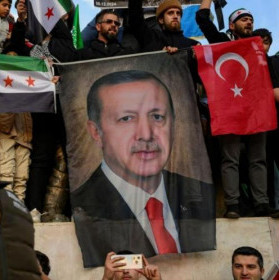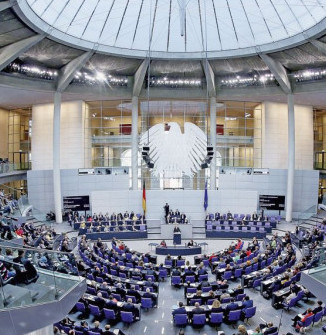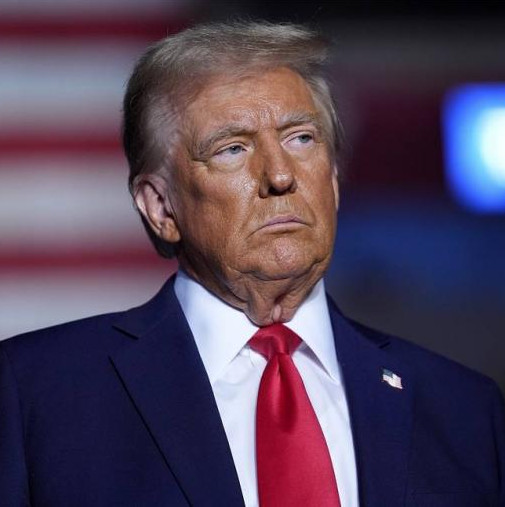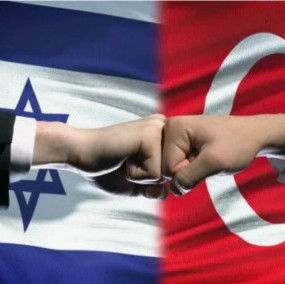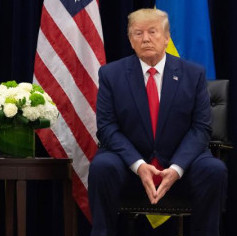Mr. Putin touched upon a number of international issues which naturally arouse concern in Russia. In particular, he drew the audience’s attention to the U.S.’ aggressive foreign policy, NATO expansion and deployment of U.S. missile interceptor bases close to Russia’s borders. The Russian president also questioned the OSCE effectiveness and pronounced Moscow’s position on the Kosovo issue.
In particular, Vladimir Putin criticized the U.S. for trying to impose its legal and political norms on other nations and described this policy as “dangerous.” “Independent legal norms are, as a matter of fact, coming increasingly closer to one state’s legal system. One state and, of course, first and foremost the United States, has overstepped its national borders in every way. This is visible in the economic, political, cultural and educational policies it imposes on other nations. Well, who likes this?” he said.
This situation is extremely dangerous, according to the Russian leader, and no one feels safe anymore. “The dominance of force inevitably encourages a number of countries to acquire weapons of mass destruction,” he noted.
The Russian president was also critical about NATO’s recent activities. “I am convinced that the only mechanism that can make decisions about using military force as a last resort is the Charter of the United Nations,” he noted. “And we do not need to substitute NATO or the EU for the UN.” “Why should we start bombing and shooting now at every available opportunity? Is it the case when without the threat of mutual destruction we do not have enough political culture, respect for democratic values and for the law?” Mr. Putin questioned.
The Russian leader also brought up the disarmament issue. Russia wants to renew dialog on the issue, he said. “We intend to strictly fulfill the obligations we have taken on. We hope that our partners will also act in a transparent way and will refrain from laying aside a couple of hundred superfluous nuclear warheads for a rainy day. “NATO countries openly declared that they will not ratify the Adapted Treaty on Conventional Armed Forces, including the provisions on flank restrictions (on deploying a certain number of armed forces in the flank zones), until Russia removed its military bases from Georgia and Moldova. Our army is leaving Georgia, even according to an accelerated schedule. We resolved the problems we had with our Georgian colleagues, as everybody knows. There are still 1,500 servicemen in Moldova that are carrying out peacekeeping operations and protecting warehouses with ammunition left over from Soviet times. We constantly discuss this issue with Mr. Solana and he knows our position. We are ready to further work in this area.
“But what is happening at the same time? Simultaneously the so-called flexible frontline American bases with up to five thousand men in each appear in Bulgaria and Romania. It turns out that NATO has put its frontline forces on our borders, and we keep abiding by our obligations under the treaty and do not react to these actions at all.
“I think it is obvious that NATO expansion does not have any relation with the modernization of the Alliance itself or with ensuring security in Europe. On the contrary, it represents a serious provocation that reduces the level of mutual trust. And we have the right to ask: against whom is this expansion intended? And what happened to the assurances our western partners made after the dissolution of the Warsaw Pact? Where are those declarations today? No one even remembers them. But I will allow myself to remind this audience what was said. I would like to quote the speech of NATO General Secretary Mr. Woerner in Brussels on May 17, 1990. “The very fact that we are ready not to place a NATO army outside of German territory gives the Soviet Union a firm security guarantee,” he said then. Where are these guarantees now?”
President Putin also defended Russia’s Iran ties. “The U.S. continues to supply military hardware, equipment and spare parts for F-14 warplanes used by Iran,” he argued in response to criticism in Russia’s military cooperation with Iran. Mr. Putin pointed out that Tehran has no missiles capable of reaching Europe and criticized Western plans to expand elements of the so-called ‘missile shield’ to Europe. According to him, it would trigger a new step of the “inevitable arms race,” the Kremlin press office reports.
Missile weapons with a range of about 5,000 to 8,000 kilometers that really pose a threat to Europe do not exist in any of the so-called “problem countries.” “And this will not happen and is not even foreseeable in the near future. Any hypothetical launch of, for example, a North Korean missile to American territory via western Europe obviously contradicts the laws of ballistics.”
“What is to become of Kosovo and Serbia? Only the Kosovars and Serbs can decide. Let’s not play God and try to resolve their problems. What we could do is try and create an environment in which they would be able to do it. We could warrant their agreements. But le us not impose those agreements on them. If one or more of the sides feel insulted and humiliated, the process will be dragged out for centuries. We’ll only push the problem into a deadlock,” the Russian president noted.
